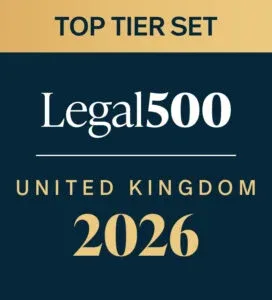Financial Remedy Work During the Lockdown and Update
It appears that money practitioners are going to have to get used to remote working. We are even being told by the senior judiciary that non- High Court final hearings are, in general, capable of being held remotely. This remains to be seen.
A recent example of a reported remote hearing is Padero-Mernagh v Mernagh [2020] EWFC 27 (Leeds Family Court allocated to High Court Judge Level. Judgment 3.4.20). Clear guidance to practitioners is provided.
The work at the old Money List level or before District Judges can be very complex and often concerns large sums of money as well as issues as to business valuation, liquidity etc. No doubt the Judges will be sympathetic to applications to adjourn complex trials until they can be held in person, but there is no reason why standard money work cannot be dealt with remotely (unless, for example, there are issues as to the parties’ ability to engage in the process).
I’m sure you will all be aware of the need to practise with the software in advance of a remote hearing where there will be witness evidence. If possible, the legal representatives, parties and any witnesses should set up a brief session before the hearing to ensure that everyone is able to manage the process.
Any remote hearing will take a little longer than it would have done in person due to technical issues arising etc. Planning ahead is vital. Before the date of an FDA hearing, the documents should be circulated, including questionnaires, and agreement reached where possible so that the hearing itself is focused. It would be helpful if, shortly before the hearing is to begin, an agreed note as to what remains in issue is sent to the Judge along with concise written submissions as to the disputed matters.
Ultimately, the right to a fair hearing is fundamental to our system of justice and if there is a risk that a method of hearing will be unfair to either or both parties, the case must be relisted. We must advise our clients about the options. Some clients who run businesses will prefer to settle now if all looks dismal for their business and the party who is financially disadvantaged may wish to agree now rather than wait for what may be the complete failure of the business.
If reports have been obtained which do not consider the effect on asset values of the current situation they will be unsafe to rely on. If offers have been made before the extent of the crisis was known, it may be wise to withdraw them.
We will have to ensure that clients in some cases sign a disclaimer. Ideally, we need to work with the most reliable figures. However, this may mean waiting for many months, if not years, so pragmatism is required. I do think that business owners will benefit from the uncertainty about their businesses. The courts will be very cautious about attributing values. There will no doubt be discounting.
There is going to be a huge backlog of cases. We are being told to consider ADR e.g. Private FDRs. These can be dealt with now, remotely, and no doubt once we are allowed to resume face to face working, and values become more certain, private FDRs will be commonplace.
As we all have a little more time on our hands at present, there is a perfect opportunity to catch up on recent case law.
Here are some of the more interesting recent decisions:
MB V EB [2019] EWCH 3676
4 year marriage but some codependence afterwards. Very wealthy Wife. Struggling artist Husband who had no earning capacity due to cognitive impediments. Separation agreement in 2011. Both had legal advice. H agreed to £245,000 for a home and £35,000 lump sum.
H issued proceedings in 2017 and said the agreement did not meet his needs and the agreement should be vitiated.
Found- H had received what he asked for in the agreement but had overestimated his ability to earn. He thought the agreement was adequate until 2017. No change of circumstances since 2011. The parties have autonomy to enter into agreements and it is not for the court to curtail that freedom.
Nevertheless, it did not meet his needs.
Award- £325,000 in addition- Duxbury award based on a man aged 59 at £25,000 pa. Plus £10,000 for a car.
H applied for costs. But W had made some open near offers. H had argued some poor points.
H had spent £650,000 in costs (!) which was “wholly disproportionate”.
FPR 2010 r 28.3 - the court must have regard to any open offers and whether it was reasonable to pursue creations issues/allegations etc. There was no reason why W should be responsible for costs unreasonably incurred by H. Order- £150,000 towards H costs.
XW v XH [2019] EWCA 2262
Assets £530M mostly from sale of a business H started pre marriage. 7 year marriage. W awarded 29% at first instance. Baker J had found inter alia that H had made a special contribution. He did not set out what part was marital. It was open to him to decide that only part of the sale proceeds were marital.
contributions to the welfare of the family that it would be inequitable to disregard.
The CA allowed the appeal and substituted its own decision ( on a broad assessment, 60% was marital). It was not a special contribution case. Equal division of the marital wealth.
CB v KB [2019] EWFC 78
Mostyn J
Long marriage. H was a musician. £5.7M assets. Both had rehoused.
H income streams were complex. Some income from future tours and merchandise was future earnings, not a marital asset as W argued.
A capital value was put on the income streams /royalties from past writing etc. This sum was marital and shared equally, providing W with c £2M.
This sum was enough for W to live on .A Duxbury figure was used, despite W being quite young. And she should amortise it i.e. spend the Duxbury fund. So W had to use her share of the marital capital to live on. No periodical payments in addition.









